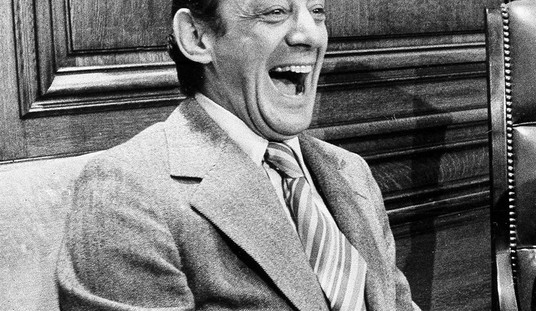Put aside the civil-liberties argument with regard to the NSA surveillance programs and look at the political fallout that these revelations might mean. Are the voters angry about the government keeping track of their phone calls and internet communications?
Surprisingly, according to two respected polling outfits, the answer is no.
“The outrage is coming from the people who write, but not the people who vote,” said Democratic pollster Jefrey Pollock, president of Global Strategy Group, adding that the type of surveillance revealed this week is seen as “a necessary evil.”
“People are willing to kind of bite the bullet a little bit if it helps stop terrorist attacks,” said Republican pollster Ed Goeas of the Tarrance Group.
A Pew Research survey in 2011 found that only 29 percent favored “the U.S. government monitoring personal telephone calls and emails” in order to curb terrorism. But Pew found in another poll that 47 percent are more concerned government policies “have not gone far enough to adequately protect the country,” while only 32 percent said they were more concerned the government has gone “too far.”
“I wouldn’t want to minimize the concern over privacy at all because it’s definitely there. But at the same time, especially in the wake of Boston and the constant threat people are feeling … protection is foremost,” said Carroll Doherty, associate director of the Pew Research Center for the People and the Press. “In this general tradeoff, when push comes to shove … more people consistently since 9/11 said protecting the country is a greater concern than restricting civil liberties.”
Gallup senior editor Lydia Saad said voters generally support the government as long as it does not cross the line of actually collecting what’s being said in calls and emails.
“You might actually hit a raw nerve with the content element if that emerges as a key difference,” she said.
This helps explain why President Barack Obama bent over backwards in California Friday to stress that “nobody is listening to your telephone calls.”
Indeed, some of the outrage coming from Republicans seems a little forced given the way many in the GOP defended President Bush when his warrantless wiretap program was exposed in the New York Times in 2005.
Republican elder statesman Charlie Black complained about conservatives who defended the practice under Bush, now trashing it under Obama. He said radio host Mark Levin would normally push to go after the terrorists but he caught him decrying it as Big Brother on the drive home from work Thursday.
Black, a confidante of Senate hawks like John McCain and Lindsey Graham, said the re-authorization of the Foreign Intelligence Surveillance Act last year empowered the government to do exactly this sort of surveillance. He wishes the government could be more candid about plots that have been thwarted.
“My guess is, a week or two from now, it’s not going to be a hot issue with the public but I don’t know that for sure,” he said.
As far as electoral fallout, that, too, seems improbable — with what we know now of how these surveillance programs worked:
Emory University political scientist Alan Abramowitz said civil liberties are a major concern to only a small minority of voters, most of them liberal Democrats. Obama generally gets high marks for dealing with the threat of terrorism, neutralizing an issue on which voters have long favored Republicans.
“So I don’t see this controversy having any adverse impact on either Obama’s approval rating or the performance of Democratic candidates in the midterm elections,” he wrote in an email. “The economy is clearly the key concern for most voters and the trend there is at least modestly favorable. I expect 2014 to be a very partisan election in which the outcome turns on base turnout.”
I disagree with Professor Abramowitz. If you place these revelations about surveillance in a context that includes the IRS scandal and the AP phone records scandal, you have a pattern that even low-information voters can recognize. Tying these scandals and revelations to Democratic incumbents is a different story, however. President Obama isn’t running for anything and Democrats have been careful to express as much outrage about the IRS and AP phone records scandals as Republicans.
But the pattern is there and President Obama is a Democrat. Even a loose connection to scandal is better than no connection at all. And if nothing else, the scandals have energized the Republican base which may affect turnout — the key to victory in any midterm election.
So while the voters may not be spitting mad about the NSA surveillance revelations, Democrats may still pay a price at the polls.
More: Another Day, Another Leak: Obama Wants Cyberwar Targets










Join the conversation as a VIP Member